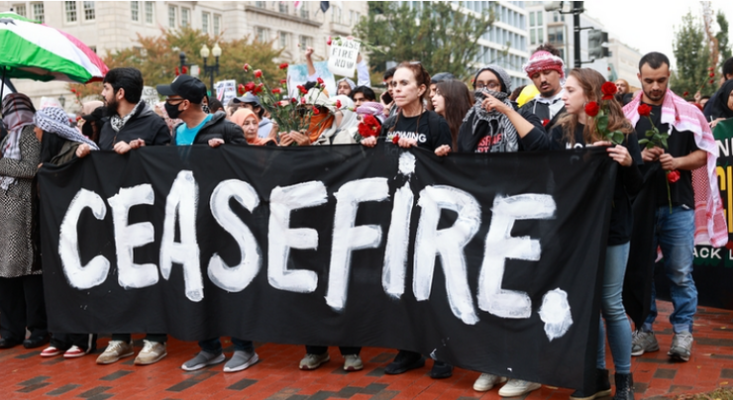
Fifty years ago, Pasadena faced a racial reckoning. In 1970, Pasadena earned the dishonorable distinction of being the first school district outside the South to be ordered by a Federal Court to integrate its schools. The school district lost a landmark civil rights case to a group of black and white parents who challenged the inequity of overcrowded and substandard schools in segregated minority neighborhoods.
“Elementary schools in Pasadena traditionally followed the most inflexible standards of segregation,” historian Julie Salley wrote in her essay, “To Fight the Good Fight.” “During the 1969-1970 school year eighty-five percent of the school district’s African-American elementary school children attended eight majority African-American elementary schools. At the same time, 93 percent of its white elementary age children attended the other twenty-one elementary schools in the district. Washington Elementary school, located east of the Arroyo in the Northwest section of Pasadena, for example, maintained an enrollment that was over 90 percent African-American. During the 1969-1970 school year 28 white students and 1060 African-American students attended this school. The Linda Vista Elementary school, located approximately one mile away on the opposite side of the Arroyo, in an upper-middle class, all white section of Pasadena known as Linda Vista, had 163 white children and one African-American child enrolled during the same period.”
After a lengthy trial, District Court Judge Manuel Real ruled, “The evidence in this case establishes that there is racial imbalance or segregation in the student bodies and faculties of the Pasadena Unified School District at all levels, elementary schools, junior high schools, and senior high schools.” He ordered the District to present a comprehensive plan to desegregate Pasadena’s public schools.
How the five members of the School Board reacted to Judge Real’s order echoes down to our own time. One week after Real’s decision, the School Board convened to weigh whether to appeal or comply with the Federal order.
I was there, among a standing room only crowd of parents, students and District staff. After an emotional debate, Board President Albert C. Lowe and members Dr. Joseph Engholm and LuVerne LaMotte voted against an appeal. Members Bradford Houser and John Welsh vehemently dissented. After the roll was called, Walsh spoke, his voice cracking with emotion, reading from a prepared statement:
“In my opinion we are today witness to the beginning of the end of local control, and under these conditions of Federal mandate where local officials, duly elected and responsible, are not allowed to function, conditions where those closest to the scene are not allowed to prevail and solve their own problems, I find it difficult to serve. . . There are challenging times ahead and I wish you Godspeed in working toward solving Pasadena’s educational problems.”
Walsh then packed up his papers and dramatically exited the room.
The trio who voted to move forward with integration were unlikely heroes. Lowe was a cautious and widely respected furniture store owner. Engholm and LaMotte had run as a slate five years before on a platform of defending “neighborhood schools.” All three were Republicans. All three would be personally savaged by the angry backlash that ensued.
Signatures were quickly gathered to recall them. Lowe’s Furniture was targeted by a boycott and sales plunged. In the bitter recall campaign, they barely held their seats with a strong turn-out from black and brown voters. But Lowe was defeated in the next election, while Engholm and LaMotte chose not to seek re-election. Before long, five fervent anti-integrationists had swept all seats. They fought the integration plan all the way to the United States Supreme Court, fired the Superintendent and methodically purged staff dissenters. It took seven years from the decision for those favoring school integration to claw back a single seat on the School Board.
In today’s climate, it may seem anachronistic to honor Lowe, Engholm and LaMotte. Looking back, it also bears remembering the courage of the parents who brought the lawsuit that prevailed against the District’s racist policies. There were myriad parents, teachers, activists, pastors and students who heroically rose to meet the moment and carry on “the good fight.”
Still, these three office holders stand as a shining model of doing the right thing in the face of old prejudices and excruciating pressure. Each had to answer with a vote to look forward, not back. Each had to search their conscience and transcend the comfortable clichés of “local control” and “neighborhood schools.”
As we again come to grips with Pasadena’s legacy of institutional racism and exclusion in our neighborhoods and schools, will our elected officials find similar courage? Will we?
_______________________________________
Rick Cole is a former Mayor of Pasadena














 1 comment
1 comment


